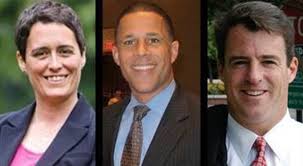The following are excepts from testimony by Trans Marylanders from the committee hearing in the House of Delegates:
Zane Walsh is a trans teen:
Things about me– I’m not a dirty prostitute or a pervert lurking in the men’s bathroom which is the image that comes up in a lot of people’s minds when the word ‘trans’ is mentioned. I am a normal kid. I love animals and rock music. I play drums and I sing. I cherish my dog Bebe. I love punk music and Billy Idol.
Maybe I love playing music so much because it does not judge based on appearance, like so many bigots do. The people who are watching me in concert don’t care about my sexuality or what gender I was assigned at birth, just my music. I LOVE dogs.
I am not that different. I get up, I eat breakfast, I take care of Bebe, I go to school, I come home, I eat, I listen to music and play with Bebe and sometimes even play with my sister who by the way has more rights than me which is downright unfair.
We are normal children so why don’t you support us?
Jennifer Fischetti spoke about being fired from her job:
The tension that week broke at 8:30am Wednesday as I arrived for a managers’ meeting and was pull out by a peer. I was to find out; it was his job to terminate me. I was being let go for what was described as performance deficiencies. I could easily refute any allegation with facts and stats, for I had to keep those records, but the peer who dismissed me simply shrugged his shoulders as if to say “It’s out of my hands”.
Yet when I filed unemployment, the agent at unemployment was astonished at the fact the company did not contest my claim. They replied I was dismissed for lack of work; that they could not afford to pay me because business was off. Yet the very next day someone else occupied my old office, holding the same capacity as I had just held. The auto industry is a very small and close-knit. Word traveled quickly and I have not held a position in my given career of 19 years since. That was nearly 10 years ago.
Blake Wideman is a police officer in Prince George’s County who worries about losing his job and ability to support his family:
I was born African American in Baltimore City which seemed to be a curse that I learned to turn into a gift. I grew up in poverty and learned to persevere through all the discrimination and hatred I had to face on a daily basis because my skin was darker, even darker than the average black person. My black features were prominent and afforded me many opportunities to be ostracized from jobs and housing that were rightfully mine. All adversity aside I and many like me not only survive but thrive.
At a very young age I knew that I was different, and not due to the color of my skin but because I had a burning desire to become great in every facet of my life. And honestly for a while I did very well, I was the first of my mother’s children to graduate high school and attend college. I have no criminal record, and even more exciting I am a part of the law enforcement sector. Every day I wear that bullet proof vest, gun, and badge to serve and protect a state and city that will not protect me because I am Transgender.
Even though I currently have a job. I work in Prince George’s County a jurisdiction that does not currently protect me from discrimination based on my gender identity. I am afraid what might happen to me and my family if I get a supervisor that doesn’t like transgender people.
I put my life on the line. I am a law abiding citizen. I pay taxes. Yet I am not protected by Maryland’s anti-discrimination laws.







